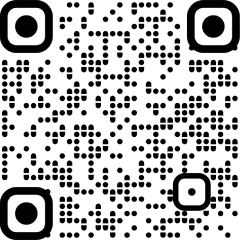The Supreme Court on Thursday said a “serious introspection” was required when it came to designating lawyers as senior advocates and referred the issue to Chief Justice Sanjiv Khanna for deciding whether a larger bench should hear the matter. Expressing its reservations, a bench of Justices Abhay S Oka and Augustine George Masih said it was doubtful whether by interviewing a candidate for a few minutes, his personality or suitability could really be tested.
“The question that needs serious consideration is whether the court should permit applications to be made for grant of designation, though the statute does not contemplate it. If the legislature intended to allow advocates to make applications for designation, sub-section (2) of Section 16 would not have provided for this court or high courts to take the consent of advocates before designation,” the bench said.
Section 16 of the Advocates Act deals with senior designation of lawyers.
“If an advocate, by virtue of his standing at the Bar, his ability or special knowledge, deserves designation as a senior advocate, the question which arises is, by making such an advocate appear for an interview, are we not compromising on the dignity of the advocate? Are we not converting the process of designation into a selection process?” it added.
An erstwhile bench of three former judges, namely, Justices Ranjan Gogoi, R F Nariman and Navin Sinha, delivered its verdict on senior advocate Indira Jaising’s plea on October 12, 2017 and issued a slew of guidelines including setting up of a permanent committee led by the Chief Justice of India to accord senior designations to lawyers.
On Thursday, however, the top court reiterated that it did not mean any disrespect to the previous decisions, and was only recording its concerns to enable the Chief Justice to decide whether the doubts expressed needed consideration by an appropriate larger bench.
The apex court said under the existing process, it was the duty of the permanent committee to make its overall assessment of the candidate based on a points-based formula.
“No other method of making an overall assessment has been provided. No one can dispute that an advocate who lacks integrity or does not possess a quality of fairness is disentitled to designation,” the bench pointed out.
It went on, “The reason is simple as such an advocate cannot be held to have any standing at the Bar. Moreover, there may be complaints pending against an advocate with the disciplinary committee of the Bar Councils. The question is how the cases of such advocates can be considered by the permanent committee?”
The court said even if members of the permanent committee knew that the applicant advocate lacked integrity; was unfair; did not act as an officer of the court; or against whom complaints were pending for professional misconduct, there was no scope to reduce the points on that count.
“If such an advocate excels at the time of the interview or otherwise renders excellent performance, he cannot be given lesser marks because the candidate lacks integrity, character or fairness. The reason is that 25 marks are to be assigned not based on his performance before the court or his general reputation but on his performance during the interview/interaction,” noted the bench.
The role of a designated senior advocate, said the court, was of considerable importance as those who were designated senior advocates had a different status and “high standing” in the legal system.
“Therefore, it is imperative that only those advocates who deserve the designation in terms of sub-section (2) of Section 16 should be conferred designation. If undeserving candidates are designated as senior advocates, it affects the prestige and dignity of the institution of the judiciary, as it is the privilege of the high courts and this court to grant such designation,” said the bench.
The court was of the opinion that a “best possible system” should be devised for the process to be undertaken in terms of sub-section (2) of Section 16.
“Ultimately, the endeavour of all stakeholders must be that we should have a system in which only deserving advocates get the designation,” it added.
The 2017 judgement said aside from the CJI, the committee would include the senior-most apex court judge or a high court judge, as the case may be in the committee.
The three-judge bench also proposed setting up of a permanent secretariat to collate all information of a prospective candidate to confer senior designation status by the permanent committee.
However, certain directions such as holding of an interview for grant of senior designation and grant of 25 marks for the interview were hotly debated.
Concerns were also raised on the weightage given to interviews in the selection process, with fears of potential manipulation and lack of equal opportunity.
In 2017, the top court formulated guidelines for itself and high courts governing the exercise of designating lawyers as seniors and said all matters relating to the designation of senior advocates in the apex court and high courts should be dealt with by a “Committee for Designation of Senior Advocates”.>


